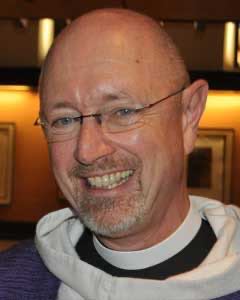SPRINGING UP in the suburbs of larger Canadian cities are new movie theatre complexes. The complete opposite of the urban cineplex, these venues are a cross between the big movie palaces of the 1940s and theme parks. They include video-game arcades, food fairs and auditoriums with stadium-styled seating, big curved screens, and huge sound systems
What do you show in such a facility? Remakes of classics is a new fad. Watch for a new movie of the TV series, My Favourite Martian, and an animated version of Rogers and Hammerstein’s musical, The King and I. In Hollywood, everything old is new again – including the Bible. Dreamworks Studio has released their rendition of the Moses story – The Prince of Egypt.
Canadian Anglicans will be pleased to know that this biblical cartoon is PG – parental guidance suggested, confirming what the church has taught for years – the Bible is not for kids alone. The PG rating is earned for “intense depiction of thematic elements.” The thematic elements depicted are from the Bible – the conditions of the Israelites in slavery and God’s slaying of the Egyptian first-born sons but passing over the children of the Hebrew slaves. These are shocking and terrifying stories that form the backbone of one of the most important biblical narratives – the deliverance of Israel from slavery to the Promised Land. The Prince of Egypt gets these parts right and includes awesome special effects such as the burning bush and the crossing of the Red Sea.
Sadly, it’s where this animated film chooses to depart from the Bible that it fails. It ignores the more subversive elements of the text – like the civil disobedience of the Hebrew midwives. It’s a musical (songs by Stephen Swartz) so you need to get ready for pop music with songs for everyone, even God! There are some innovations added to the classical story. There’s a conflict between brothers introduced: Moses (voice of Val Kilmer) has a brother Rameses (voice of Ralph Fiennes). They’re fun-loving guys, and Moses is always getting them into trouble. They race their chariots (great computer-generated special effects) but, after leaving Pharaoh’s palace and learning about his true identity, Moses returns to ask for the liberation of his people. When he meets Pharaoh face to face, it’s his old buddy Rameses. This narrative device works well enough, except not much is added to the story. And it takes up so much time that by the time we reach the parting of the Red Sea the movie is almost over, ending with Moses on Mount Sinai holding the tablets of the Ten Commandments. Prince of Egypt 2 perhaps?
For church leaders, the question about The Prince of Egypt isn’t whether we should recommend that people see it since, through video cassettes and TV broadcast, it will be around for a long time and it’s already been seen by millions. How can the great themes of liberation, divine righteousness and spiritual leadership be salvaged out of this, the latest in Bible-based movies?
Maybe it’s because I’m not a student of Elizabethan literature that I found Shakespeare in Love a more satisfying cinematic experience. Here’s a movie that’s delightful: you know already that it’s not the real thing – it’s not Shakespeare but, surprisingly, you get some first-rate classical acting in it. It’s about a young, up-and-coming playwright – Shakespeare’s (Joseph Fiennes) new play, Romeo and Ethel, the Pirate’s daughter. The writers of the film, Tom Stoppard and Marc Norman, present a wildly energetic script, with Shakespearian references and tossed-off lines that are full of fun. It’s a bawdy, erotic romp as Shakespeare falls in love with Viola (Gwyneth Paltrow) who becomes his lover and the inspiration for the character of Juliet. This is a film that reveals the creative process in action – the relationship between the creation of art and the human journey of the artist is at the heart of the script. Add in star turns by Judi Dench and Ben Affleck and you have a wonderfully conceived and executed film by John Madden, the director of last year’s Mrs. Brown.
If movies are being produced as entertainment for the new multi-screen palaces, give me the funny, sexy, literate energy of Shakespeare in Love to inspire and amuse; I’ll take it any day over a thinned-out, toe-tapping version of the book of Exodus.
Peter Elliott is dean of Christ Church Cathedral, Vancouver, and a member of the board of directors of the Vancouver Film Festival.




